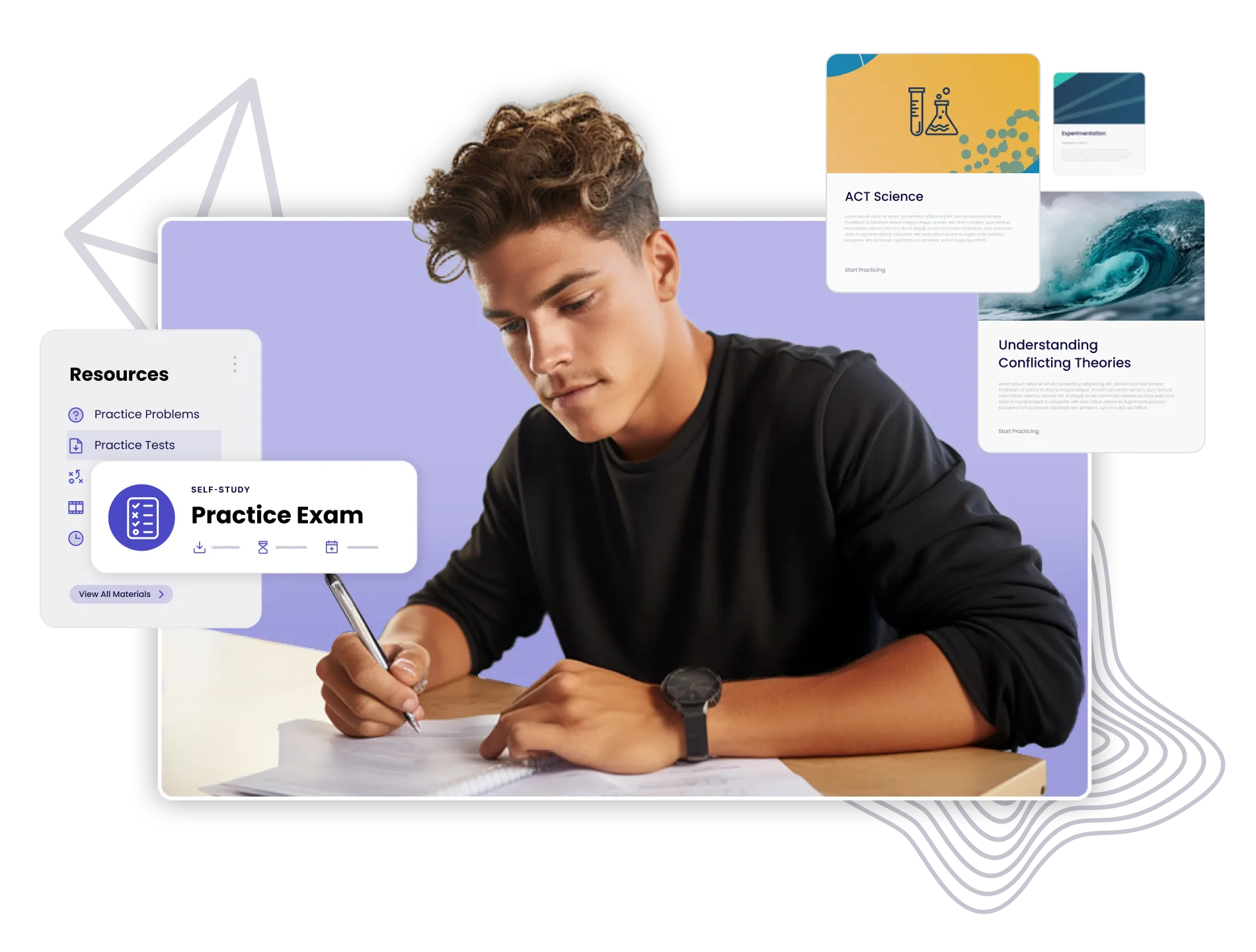How to Find a Job After College: Advice for Recent Graduates

Can you believe it? Your college journey is coming to an end. All the years of hard work, endless nights spent studying, and relationships you've built have led you to this point. Go ahead, take a bow -- you've earned it! Now, what next? It's time to begin your job search.
Finding a job after college is a challenge that nearly every graduate faces (and yes, it can feel overwhelming). But before you start blindly diving into job boards or career fairs, take a moment to review these tips from Varsity Tutors.
Landing your dream job takes work, but with an exhaustive approach to your job search, you can significantly increase your chances of doing so.
Challenges College Graduates Face During the Hiring Process

Graduating college is a huge accomplishment, but transitioning from campus life to the professional world isn’t always smooth. There will likely be many "no's" that come your way -- sometimes you won't get a response at all. It's vital not to get discouraged. Many recent graduates find the job search process overwhelming and face common challenges, such as:
- Lack of experience: You'll likely encounter the classic "entry-level position that requires three years of prior experience." (I know, it doesn't make sense). This can leave applicants feeling stuck or unqualified.
- High competition: Thousands of other college students will be looking for jobs at the same time you are. This can make it harder to land the job you desire.
- Unclear career path: If you don't know exactly what you want to do after graduation, you're not alone. While this is completely normal, it still makes it hard to know what job opportunities to pursue.
- Rejection fatigue: No one wants to hear "no" repeatedly. Unfortunately, as you explore the job market, you'll most likely experience this feeling of constant denial.
Navigating the application process: From customizing resumes to writing tailored cover letters, the process can feel daunting if you’re unsure where to start.
Early Career Advice

Job seekers fresh out of college will likely experience one (or all) of the challenges listed above, but with the correct game plan, intentional applications, and a positive mindset, it won't be long before you find your first job. Let's dive into actionable tips and advice you can implement during your job search.
Networking: Connect Your Way to Opportunity
You may have heard the old adage, "It's not what you know. It's who you know." This rings especially true in the professional world. Those who have worked with you in the past, whether former professors, colleagues, or mentors, can speak for you better than an application can. Don't be afraid to contact people you've had prior experiences with. The worst they'll do is ignore you -- so what? On the other hand, it may open doors to potential jobs you previously never imagined.
Connecting with old colleagues can also break the monotony of looking at endless job postings. Between LinkedIn, Indeed, Glassdoor, and the seemingly hundreds of other job listings, it's impossible to tell what a genuine lead is and what isn't.
So, if you haven't already, start networking! Here are some places to start:
- Start with existing relationships. Reach out to professors, classmates, alumni, or friends already in the field you want to enter. Alumni networks are especially valuable since they often want to help fellow graduates succeed.
- Get comfortable with cold outreach. It might initially feel awkward, but sending a friendly message to a hiring manager or someone in your dream industry can open unexpected doors.
- Attend events (in-person and virtually). Career fairs, webinars, and networking mixers are great ways to meet professionals and learn about opportunities.
Those you've already built relationships with can draw from their personal experience with you, which often holds more weight than a stellar GPA or high test scores.
Build a Rock-Solid Resume
Your resume is often the first impression you’ll make with potential employers, so it’s essential to make it count. Think of it as your highlight reel—a quick snapshot of your skills, experiences, and achievements. A strong resume doesn’t just showcase what you’ve done; it tells a story about who you are as a candidate and how you can bring value to the role.
Creating a standout resume can be tricky, especially for recent graduates who may not have extensive work experience. The good news? Employers hiring for entry-level positions understand this and are looking for transferable skills, relevant coursework, and internships that show you’re ready to hit the ground running.
- Tailor your resume for each job: Generic resumes won’t cut it. Customize your skills and experience to match the job description.
- Highlight measurable achievements: Instead of saying “Assisted with marketing campaigns,” say “Increased engagement on social media by 25% through targeted campaigns.”
- Keep it concise and clean: Stick to one page, use a professional font, and proofread carefully (typos are an instant dealbreaker).
Need help building your resume? Check out these 5 resume-building tips.
Set Up Your LinkedIn Profile
If you haven't already done this as part of your college coursework, you'll want to make sure you spend the time building an attractive LinkedIn profile. LinkedIn is likely the first website a potential employer will visit to learn about you, meaning it's your first chance to make a meaningful difference. On this platform, you'll share major life achievements, connect with other professionals, and engage with industry trends. Think of it as your personal billboard, advertising your greatest work qualities.
A well-crafted LinkedIn profile isn’t just about looking polished; it’s about telling your professional story in a way that resonates. Here are some ways to make your profile cut through the noise:
- Choose a professional profile picture: Skip the casual selfies and opt for a clear, polished photo. Consider paying for a professional headshot if you don't already have one.
- Write a compelling headline and summary: Include your key skills, aspirations, any advanced degrees you received, and what makes you stand out. Don't be afraid to brag!
- Stay active: Like posts, share articles, and engage with industry content to show enthusiasm. The more active you are, the more likely a recruiter or potential employer will be to reach out to you.
- Showcase your availability: Make sure potential employers know you're open to work and what you're seeking. If you're only looking for part-time jobs, ensure that is conveyed on your profile!
- Use other job boards, too: Sites like Indeed, Glassdoor, and Handshake can help you find open positions tailored to your interests.
Hone Interview Skills (and practice them)
Want another surefire way to increase your chances of getting a job? Sharpen your interview skills. While this is the most nerve-wracking part of the application process, being thoroughly prepared can make all the difference. Crushing an interview can also make up for a lack of field experience. Remember, the interviewee is hiring you, the person. Not you, the resume.
Here are some great ways to become a better interviewer:
- Research companies before interviewing with them: Know their mission, recent projects, and core values—it’ll help you stand out as a candidate.
- Prepare answers to common questions: Practice explaining your strengths, weaknesses, and why you want the role. (Bonus: Have examples ready to back up your claims.)
- Ask questions of your own: Interviewers love a good follow-up question. Show you’re engaged by asking about company culture, team goals, or opportunities for growth.
- Practice! Conduct mock interviews with friends, mentors, or even in front of a mirror to refine your delivery.
Check out this blog for deeper insight on mastering the interview process.
Start with an Internship
Many people use internships as a way to break into industries they don't have prior experience in. They often serve as stepping stones to full-time positions, allowing you to get your foot in the door and showcase your value to employers. They are also a good way for you to "test-run" different jobs without making a long-term commitment.
It's easy to dismiss job opportunities that don't provide a paycheck, but unpaid internships can be of real value. These roles often offer unique insights into your chosen industry, allowing you to build a strong foundation for your career. Think of them as investments in your future. Use this time to gain skills that will be relevant in your career, whether that’s mastering new software, improving communication techniques, or learning the ins and outs of your field.
Stay Positive
Don't get it twisted: just because this is at the bottom of the blog doesn't mean it's not as important as the prior tips. In fact, staying positive during your job search might be one of the most critical factors in your success. Rejections are inevitable; how you respond is what matters. A positive mindset helps you bounce back from setbacks and keeps you motivated to keep pushing forward. Remember, every "no" brings you one step closer to the "yes" that could change everything. Remember to:
- Celebrate small wins: Did you get a call back? Nail a tough interview? Every step forward is progress.
- Reassess and adapt: If you’re not hearing back, refine your resume or apply to different roles.
- Lean on your support system: Friends, family, and mentors can offer encouragement when needed.
- Take a break, reset: If you feel yourself losing confidence and the quality of your applications is suffering because of it, it may be best to take some time away. The job market isn't going anywhere -- there will always be another great opportunity. Don't run yourself into the ground before you even get a job!
Final Thoughts: Keep Moving Forward
Beginning the job search after college is scary, exhausting, and sometimes even discouraging. You're entering a brand-new world. One without homework, finals week, or Summer break. To be overwhelmed is a completely normal part of the process. But remember, you graduated college for a reason.
No matter how many challenges life throws at you during your job hunt, it's vital to maintain a forward-thinking mindset. Your dream job likely won't appear overnight, but perseverance and strategy will help bring you there.
Still looking for additional resources? Check out the Varsity Tutors Playbook, where you can find an array of materials on nailing job interviews, building resumes, landing your dream job, and more!

